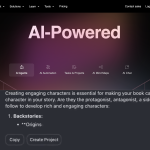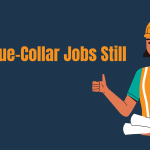Quick Take:
As artificial intelligence becomes increasingly integrated into industries, ignoring its transformative potential is not a strategy for survival. Whether you embrace or reject AI, its impact is already reshaping the future of work and society.
The Growing Divide Between Adopters and Skeptics
Artificial intelligence isn’t just the latest tech trend; it’s a paradigm shift. While some industries race to adopt AI for automation, optimization, and cost reduction, others remain skeptical or dismissive. Phrases like “the government will ban it” or “it’s not happening anytime soon” are common refrains from those hoping to delay the inevitable. However, history has shown us that resistance to technological progress often leads to being left behind.
For those ignoring AI, the risk isn’t just about missing out on efficiency—it’s about losing relevance. As one Reddit user noted, the idea that “AI won’t take jobs, but people who use AI will take yours” has already started playing out in various industries.
Why the Shift Is Faster Than You Think
Many skeptics point to the high costs and limitations of current AI models as a reason for inaction. However, advancements in machine learning, the rise of AI-powered tools, and corporate investments in AI infrastructure suggest that the true rollout of these technologies will happen much faster than most anticipate.
Industries such as legal services, content creation, customer support, and even creative arts are already seeing AI integration. In the legal field, for example, AI tools are being used for case analysis and paperwork, giving early adopters a competitive edge over those relying solely on human labor.
Preparing for the AI-Driven Future
Dismissing AI as a “passing trend” echoes the same skepticism once directed at the internet, personal computers, and smartphones. The lesson is clear: adapting early is better than being forced to catch up later.
Here are a few steps individuals and businesses can take to prepare:
1. Learn and Experiment: Whether it’s exploring tools like ChatGPT for productivity or implementing AI-powered analytics, hands-on experience is key to understanding the technology.
2. Reskill and Upskill: For professionals, AI literacy is quickly becoming a core competency. Those who understand how to collaborate with AI will thrive.
3. Monitor Industry Trends: Keeping an eye on how competitors are adopting AI can provide insights into where the technology is headed in your field.
A Call to Action
The conversation around AI is shifting from “if” to “when.” Businesses and individuals ignoring its potential are akin to the proverbial pigeon closing its eyes, hoping the danger will pass. But AI isn’t going away—it’s evolving rapidly, and those who refuse to engage with it now risk falling behind in an increasingly competitive landscape.
As one commenter put it, “It’s not about AI replacing jobs. It’s about whether you can use AI to keep yours.”


